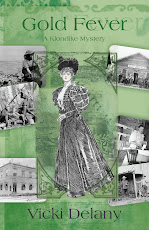



Juba, South Sudan.
The people here are TALL. Wow. Many of the South Sudanese are from the Dinka tribe, which is famous for the height of their people. It’s not uncommon to see people 6’5 and above on the streets. And that includes the women! There is a shoe market near where I walk most days, and the size of some of the shoes!
Generally they are also thin, with long, long arms and legs and necks. South Sudanese are, generally speaking, very black. As in black, not dark brown.
I wish I had some pictures to show you, but I really can’t take pictures of people on the street.
My daughter went to an official event recently and had her picture taken with a couple of dignitaries. She is a normal sized Canadian woman and looks like a little child standing with them.
It is the dry season now, and dry is the operative word. As there are so many unpaved roads the dust is incredible. It’s a reddish dust. I have developed a very bad cough which I suspect is because of the dust and the smog. As in any third world city, the environmental standards are not, shall we say, quite what I am used to. It is also the custom to burn off the fields in the dry season and ash is falling from the sky. \
Saturday I went to the town of Nimulai on the Ugandan border with a group of my daughter’s friends. The intent of the trip was to visit the National Park. Unfortunately we didn’t see any wildlife, but the trip was very interesting and we had a great hike to see the cataracts on the Nile. At one point we were very high up looking down over the plains and the Nile meandering into the distance.
En route to the cataracts we passed a UN police vehicle driven by an RCMP officer on temporary duty with the UN. They invited us to the UN compound for a cold drink before heading back, and I took the opportunity to pounce on him for information about his job here.
Fodder, I hope, for a story soon.
The road to Nimulai is being paved and parts of it were in very good condition. Parts, shall we say, were not. And the dust was incredible. At times we couldn’t see the car in front of us. Not a safe road either, as overloaded buses to and from Uganda kept passing us , on the left, when visibility was about 10 feet.
We passed some de-mining camps and work areas. A reminder of what this country is coming out of.
The International community here is very vibrant and friendly and the social life is great. My daughter had a dinner party on Friday evening. Sunday we had TWO social engagements. A lunch party to meet the new Dutch Ambassador, and then a BBQ dinner. Interestingly, the International community also consists of Africans from other African countries. The BBQ was at the home of a Kenyan woman who runs a car rental agency (car rental in some cases includes drivers) and her Canadian partner. A fun day.
To complicate things: imagine trying to find a house you have not been to before in a city with no street name signs our house numbers. Can be tricky.
There are no districts in Juba. Meaning no suburb for the nice houses and shantytowns on the outskirts. Everything is jumbled in together. It did seem odd to be at the lunch party in a lovely cool house full of Dutch furniture and art, drinking nice wine and eating excellent food and talking about Holland and International politics and then step out the gate into a street that is a dusty track filled with garbage where the neighbours live in mud or thatch shacks and little children run through the streets with feral dogs and goats.






















